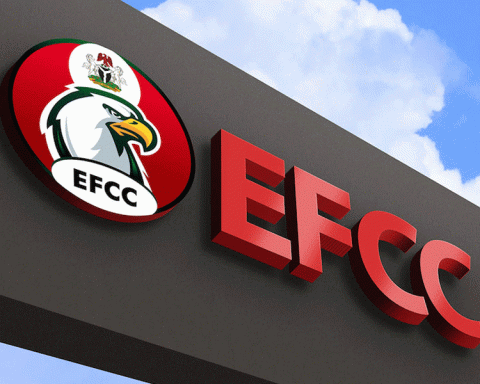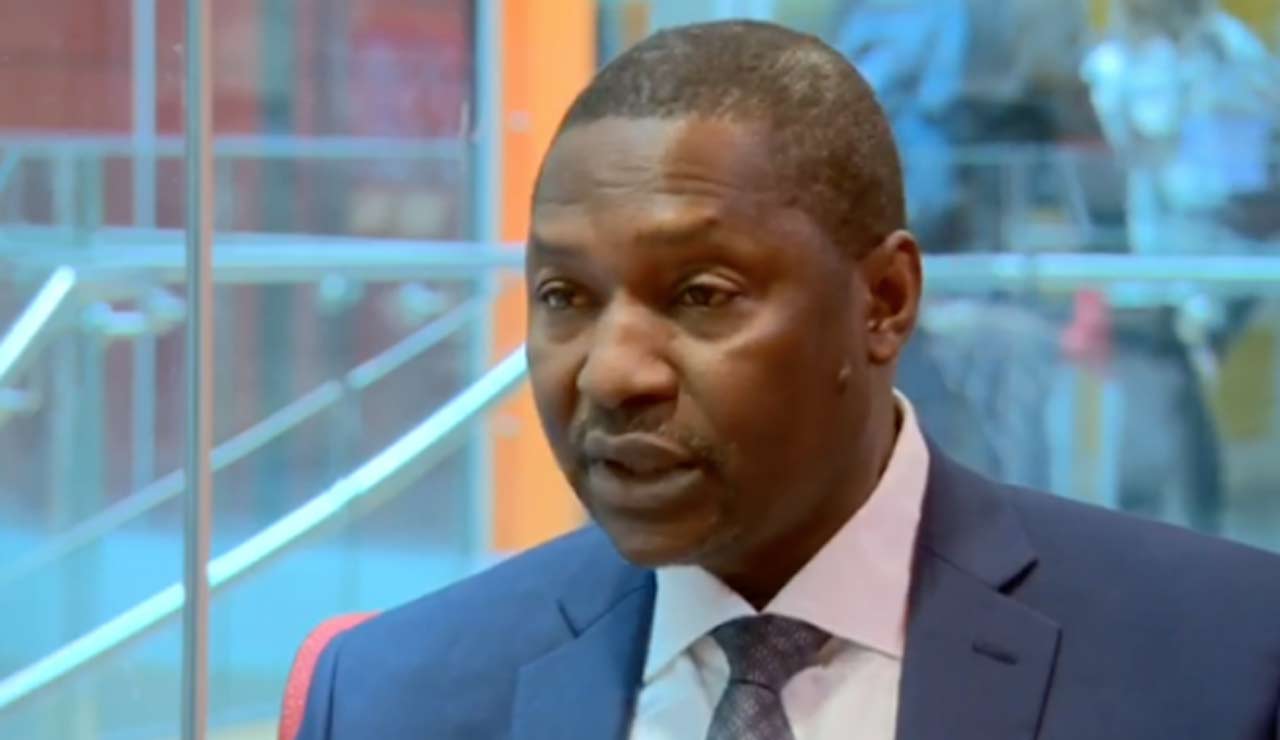The Economic and Financial Crimes Commission (EFCC) has warned against the abuse of the naira, describing the widespread practice of spraying and stamping on currency notes at social gatherings as a criminal offence under Nigerian law not a cultural tradition.
Speaking during a stakeholder engagement held in Lagos on Friday, the EFCC Chairman, Ola Olukoyede, emphasised that the Commission will intensify enforcement and prosecution of individuals who mishandle the naira, regardless of their social standing.
Join our WhatsApp Channel“Spraying and stamping on the naira are not cultural practices but punishable offences under the law,” Olukoyede said.
“As a salary earner myself, it is unimaginable for me to throw my hard-earned income into the air. An offence is an offence, and ignorance of the law is no excuse.”
Citing Sections 21(3) and 5 of the Central Bank of Nigeria Act, 2007, Olukoyede stressed that defacing, mutilating, or tampering with currency notes is illegal and attracts significant penalties, including fines and imprisonment. He further clarified that the EFCC, in collaboration with law enforcement and the Central Bank of Nigeria (CBN), has begun close monitoring of events across the country to curb the trend.
READ ALSO: Naira Abuse: Cubana Chief Priest Granted N10m Bail
The Lagos event, organized by the EFCC’s Zonal Directorate 1, drew participants from the entertainment industry, media, non-governmental organizations, Bureau de Change operators, and legal practitioners. Olukoyede used the platform to rally support from stakeholders, urging them to become advocates for the protection of Nigeria’s financial integrity.
“The naira is not just a means of exchange,” Olukoyede stated. “It is a symbol of our sovereignty. How we treat it reflects how much we respect ourselves as a people.”
He announced that the EFCC had established a Task Force on Dollarization and Naira Abuse, which has led to a series of prosecutions including some involving public figures and celebrities.
Addressing the media, Olukoyede challenged entertainers and influencers to leverage their platforms to educate fans and audiences. “In every performance, let one of your opening lines be a reminder to your fans that spraying or stamping on the naira is a crime. We must all rise to defend the integrity of our currency,” he urged.
Beyond enforcement, the EFCC Chairman highlighted the financial strain naira abuse places on national resources, pointing out that replacing mutilated notes costs the Central Bank substantial sums annually.
He also reaffirmed the Commission’s commitment to President Tinubu’s economic reform agenda, noting that the EFCC has already recovered and redirected over ₦100 billion from proceeds of crime into national investment programs such as the National Education Loan Fund (NELFund) and the Consumer Credit Scheme (Credicorp).
Some of the recovered assets, he revealed, have been repurposed for public good such as the establishment of a liaison office and skill acquisition center for the Niger Delta Development Commission (NDDC) in Bayelsa, and the conversion of a seized property in Kaduna into the Federal University of Applied Sciences, Kachia.
Also speaking at the event, the Director-General of the National Orientation Agency (NOA), Lanre Issa-Onilu, commended the Nigerian creative industry for its role in shaping national culture and urged stakeholders to uphold ethical values.
“The abuse of the naira is not only unlawful, it is unethical,” Issa-Onilu said. “As citizens, we must embody civic responsibility and national cohesion. Our actions must align with the National Values Charter. Values must be our guide in everything we do.”
As the EFCC steps up its campaign against naira abuse, Nigerians are being urged to respect the national currency not only as a legal tender but also as a symbol of identity, dignity, and pride.
Amanze Chinonye is a Staff Correspondent at Prime Business Africa, a rising star in the literary world, weaving captivating stories that transport readers to the vibrant landscapes of Nigeria and the rest of Africa. With a unique voice that blends with the newspaper's tradition and style, Chinonye's writing is a masterful exploration of the human condition, delving into themes of identity, culture, and social justice. Through her words, Chinonye paints vivid portraits of everyday African life, from the bustling markets of Nigeria's Lagos to the quiet villages of South Africa's countryside . With a keen eye for detail and a deep understanding of the complexities of Nigerian society, Chinonye's writing is both a testament to the country's rich cultural heritage and a powerful call to action for a brighter future. As a writer, Chinonye is a true storyteller, using her dexterity to educate, inspire, and uplift readers around the world.











